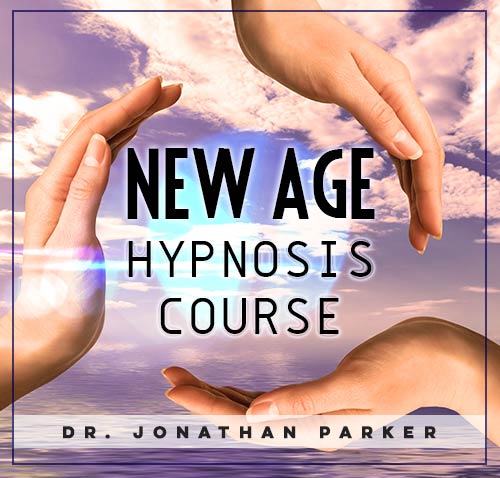Using Hypnosis for Better Sleep

Looking for more amazing products? Check out our online store and explore our collection here! Happy shopping!
Before diving in, please note: This post is for informational purposes only. If you’d like to know more about how we approach topics, feel free to check out our friendly Disclaimer Page.
Hey there, amazing readers! 
We’re committed to delivering quality posts, and your support (even just sticking around despite the ads) means everything to us. So, bear with us, and thanks for helping us keep the good vibes rolling. Now, on to the fun stuff!
TRANSLATE BUTTON AT THE END OF THE ARTICLE
Introduction to Hypnosis for Better Sleep
In today’s fast-paced world, getting a good night’s sleep can sometimes feel like an elusive dream.
Many people struggle with falling asleep or staying asleep, leading to feelings of fatigue and irritability during the day.
This is where hypnosis can come in as a natural and effective solution for improving sleep quality.
Hypnosis is a state of focused attention and heightened suggestibility that allows individuals to access their subconscious mind.
Through this process, hypnotherapy can be used to address various issues, including insomnia and other sleep disturbances.
By tapping into the power of the mind, hypnosis can help rewire negative thought patterns and promote relaxation, leading to better sleep outcomes.
Understanding the Basics of Hypnotherapy
Hypnotherapy is a therapeutic technique that uses hypnosis to help individuals make positive changes in their lives.
During a hypnotherapy session, a trained hypnotherapist guides the individual into a state of deep relaxation.
In this relaxed state, the individual becomes more open to suggestions that can help them overcome challenges or achieve specific goals.
When it comes to using hypnosis for better sleep, hypnotherapy sessions are tailored to address the root causes of insomnia or sleep difficulties.
By addressing these underlying issues, hypnotherapy can help individuals experience more restful and rejuvenating sleep.
How Hypnosis Can Improve Your Sleep Quality
Hypnosis can improve sleep quality by addressing the mental and emotional factors that contribute to insomnia or sleep disturbances.
Through hypnotherapy, individuals can learn to reframe negative thoughts and beliefs that may be keeping them awake at night.
By promoting relaxation and reducing stress levels, hypnosis can also help individuals unwind before bedtime and prepare their minds and bodies for sleep.
Additionally, hypnosis can be used to create positive affirmations and visualizations that promote a sense of calm and peace, making it easier to fall asleep and stay asleep throughout the night.
Benefits of Using Hypnosis for Insomnia
The benefits of using hypnosis for insomnia are numerous and far-reaching.
Some of the key advantages of hypnotherapy for improving sleep quality include:
Natural and non-invasive: Hypnosis is a natural and non-invasive way to address sleep issues without the need for medication.
Customized approach: Hypnotherapy sessions can be tailored to each individual’s specific needs and concerns, making it a personalized solution for better sleep.
Long-lasting effects: Unlike quick-fix solutions, hypnosis can lead to long-term improvements in sleep quality by addressing underlying issues.
Improved overall well-being: Better sleep quality can lead to improved mood, cognitive function, and overall quality of life.
Reduced reliance on sleep aids: Hypnosis can help individuals reduce their reliance on sleep medications or other aids by addressing the root causes of sleep disturbances.
Different Hypnosis Techniques for Better Sleep
There are various hypnosis techniques that can be used to improve sleep quality and address insomnia.
Some common hypnosis techniques for better sleep include:
Progressive muscle relaxation: This technique involves tensing and relaxing different muscle groups in the body to promote physical relaxation.
Guided imagery: Guided imagery uses visualization to create calming and peaceful mental images that promote relaxation and sleep.
Self-hypnosis: Individuals can learn self-hypnosis techniques to practice on their own, allowing them to access the benefits of hypnosis whenever needed.
Positive affirmations: Positive affirmations can be used to counteract negative thoughts and beliefs that may be contributing to sleep difficulties.
Finding a Qualified Hypnotherapist
When seeking hypnotherapy for better sleep, it is crucial to find a qualified and experienced hypnotherapist.
Here are some tips for finding a qualified hypnotherapist:
Check credentials: Look for a hypnotherapist who has received training from a reputable institution and holds certifications in hypnotherapy.
Read reviews: Take the time to read reviews and testimonials from previous clients to get a sense of the hypnotherapist’s track record and success rate.
Ask for recommendations: Reach out to friends, family, or healthcare providers for recommendations on hypnotherapists they trust.
Schedule a consultation: Before committing to hypnotherapy sessions, schedule a consultation with the hypnotherapist to discuss your goals and concerns.
Preparing for a Hypnotherapy Session
Preparing for a hypnotherapy session can help you make the most of the experience and maximize the benefits for better sleep.
Here are some tips for preparing for a hypnotherapy session:
Set intentions: Before the session, take some time to reflect on your goals and intentions for using hypnosis to improve your sleep.
Create a relaxing environment: Find a quiet and comfortable space where you can relax and focus during the hypnotherapy session.
Avoid stimulants: Avoid consuming caffeine or other stimulants in the hours leading up to your hypnotherapy session to promote relaxation.
Stay open-minded: Approach the hypnotherapy session with an open mind and a willingness to engage in the process fully.
What to Expect During a Hypnosis Session
During a hypnosis session for better sleep, you can expect the following:
Induction: The hypnotherapist will guide you into a state of deep relaxation through techniques like deep breathing and visualization.
Suggestions: While in a hypnotic state, the hypnotherapist will provide suggestions related to improving sleep quality, relaxation, and stress reduction.
Deepening: The hypnotherapist may deepen the hypnotic state to help you access your subconscious mind more effectively.
Waking: At the end of the session, the hypnotherapist will guide you back to a fully awake state, feeling refreshed and relaxed.
Incorporating Self-Hypnosis into Your Routine
In addition to hypnotherapy sessions with a professional, individuals can also incorporate self-hypnosis techniques into their daily routine to promote better sleep.
Self-hypnosis involves using relaxation techniques, positive affirmations, and visualizations to access the subconscious mind and promote relaxation.
By practicing self-hypnosis regularly, individuals can reinforce the positive changes made during hypnotherapy sessions and continue to improve their sleep quality over time.
Long-Term Effects of Hypnosis on Sleep
The long-term effects of hypnosis on sleep can be profound and lasting.
By addressing the underlying factors contributing to insomnia or sleep disturbances, hypnotherapy can lead to significant improvements in sleep quality over time.
With regular hypnotherapy sessions and practice of self-hypnosis techniques, individuals can experience better sleep patterns, reduced stress levels, and an overall sense of well-being.
The long-term effects of hypnosis on sleep go beyond just addressing immediate sleep issues and can have a positive impact on various aspects of one’s life.
Combining Hypnosis with Other Sleep Aids
While hypnosis can be a powerful tool for improving sleep quality on its own, it can also be combined with other sleep aids for enhanced benefits.
Individuals may choose to use hypnosis in conjunction with techniques like mindfulness meditation, relaxation exercises, or sleep hygiene practices to create a comprehensive approach to better sleep.
By combining hypnosis with other sleep aids, individuals can address multiple aspects of their sleep routine and create a holistic plan for improving sleep quality.
Conclusion: Using Hypnosis as a Natural Sleep Solution
In conclusion, hypnosis can be a valuable and effective tool for improving sleep quality and addressing insomnia.
By tapping into the power of the mind and accessing the subconscious, hypnosis can help individuals reframe negative thought patterns, promote relaxation, and create positive changes that lead to better sleep outcomes.
With the guidance of a qualified hypnotherapist and the practice of self-hypnosis techniques, individuals can experience long-lasting improvements in sleep quality, reduced stress levels, and an overall sense of well-being.
Consider exploring hypnosis as a natural and non-invasive solution for better sleep and take the first step towards getting the restful and rejuvenating sleep you deserve.

The Enlightenment Journey is a remarkable collection of writings authored by a distinguished group of experts in the fields of spirituality, new age, and esoteric knowledge.
This anthology features a diverse assembly of well-experienced authors who bring their profound insights and credible perspectives to the forefront.
Each contributor possesses a wealth of knowledge and wisdom, making them authorities in their respective domains.
Together, they offer readers a transformative journey into the realms of spiritual growth, self-discovery, and esoteric enlightenment.
The Enlightenment Journey is a testament to the collective expertise of these luminaries, providing readers with a rich tapestry of ideas and information to illuminate their spiritual path.
Our Diverse Expertise
While our primary focus is on spirituality and esotericism, we are equally passionate about exploring a wide range of other topics and niches 

To ensure we provide the most accurate and valuable insights, we collaborate with trusted experts in their respective domains 
Our blog originally focused on spirituality and metaphysics, but we’ve since expanded to cover a wide range of niches. Don’t worry—we continue to publish a lot of articles on spirituality! Frequently visit our blog to explore our diverse content and stay tuned for more insightful reads.
Hey there, amazing reader! 
Check out our store here and take a peek at some of our featured products below! Thanks for being awesome!












